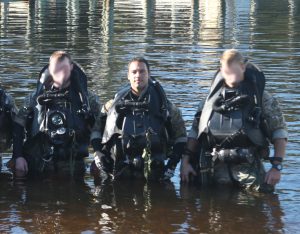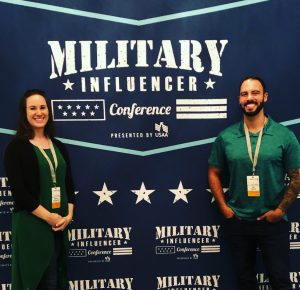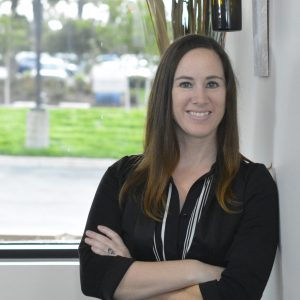By Wes O’Donnell
Managing Editor, InMilitary and InCyberDefense
In the fast-paced, attractive world of veteran-owned startups, many founders are quick to lose sight of the nuts and bolts that enable a business to function properly. Often blinded by a shiny new gadget or anxious to spend marketing dollars to attract their first customers, some founders sabotage the solid accounting foundation necessary to build a sound and functioning business.
In a recently released report, Palo Alto Software asked business founders, “What services do early-stage small businesses want from their accountants?” The top three responses were:
- Tax planning
- Cash planning and forecasting
- Bookkeeping
And yet, according to the same report, a staggering 48% of respondents gave no thought to accounting at all!
By their very nature, many certified public accountants (CPAs) are risk-averse. Entrepreneurs, on the other hand, are not. This disparity can result in an increased level of friction when startup founders are inclined to accelerate and move quickly, while their accountants advise the orderly development of an internal system of controls and analytics.
Recognizing these challenges, some CPAs refuse to work with startups. However, I recently had the good fortune to discover an accounting firm that embraces the startup challenge.
Husband and wife team Erik and Rebecca Casarez founded Green Ledger CPA after Erik had served as a Green Beret in the U.S. Army, separating in 2016. Rebecca is a CPA with bachelor’s and master’s degrees in accounting.

Their company, Green Ledger CPA, focuses their experience and expertise to assist startups and small businesses. In addition, their services are built to support the day-to-day functions of a company, allowing the management to make decisions based on accurate books and a solid financial and tax strategy.
Green Ledger CPA provides monthly bookkeeping, financial reporting and tax preparation and analytics, among many other services. However, it has moved away from the hourly billing rates that are an industry standard. Instead, Green Ledger CPA offers monthly plans on a sliding payment scale, based on the client’s accounting needs.
The monthly payment model has become ubiquitous across industries in the past five years; its fixed cost plan makes it popular with startups. Clearly, Green Ledger CPA has its finger on the pulse of what founders want for services that enable them to better manage their cash flow.
To get more insight into how Erik and Rebecca started Green Ledger CPA, I spoke with Erik about transitioning veterans, company culture and startups.
Wes O’Donnell: Erik, thanks so much for taking the time to chat today. Can you start by telling me a little bit about your military background?

Erik Casarez: Thanks, Wes. A pleasure to be here. I initially joined the Army infantry and was assigned to the 82nd Airborne. Within months, I was deployed to Iraq for 13 months and spent some time around a Navy SEAL team. I think that exposure to a special operations unit had a substantial impact on me.
Afterward, I decided I wanted to be a Green Beret and attended Selection [Special Forces Assessment and Selection Course (SFAS)], and then the “Q-Course” [Special Forces Qualification Course (SFQC]). After that, I was assigned to 7th Special Forces Group and began a career in the special operations community. I would deploy to Afghanistan and Honduras; I also served as a combat diver and a JTAC.
Editor’s Note: Joint Terminal Attack Controller (JTAC) is the term used in the United States Armed Forces and some other military forces for a qualified servicemember who directs the action of combat aircraft engaged in close air support and other offensive air operations from a forward position.
I transitioned out in 2016, but I had a web design company that I ran throughout my transition.
Wes: I know a lot of active-duty men and women serving right now are going to be reading this, but I don’t think a lot of them are well prepared for that transition. Tell me about that transition for you. How hard was it?
Erik: You know a major issue with transitioning servicemembers is simply that a lot of folks don’t know what to do when they get out. Some don’t have a plan.
Those that do have a plan, like being a cop or becoming a personal trainer, realize very quickly that they were better off in the military and go back. My biggest piece of advice is to have a plan and start planning well ahead of your separation date.

Wes: In the early days of your business, how did you build credibility? The reason I’m asking is that there is a lot of competition for the same accounting services that Green Ledger CPA provides. How did you rise above the rest?
Erik: In the professional services space like accountants or lawyers, it’s common for the professional to run the business. The issue is that while they may be brilliant accountants or lawyers, they may not be great at business development. And the reason is that after years of college and years in one particular specialization, they tend to get siloed into a particular job.
When we started Green Ledger CPA, we resolved immediately to run it like a real business. We focused on marketing, sales and all of the functions that may fall by the wayside of a typical professional services company.
Wes: I think this is the most requested question we get from new veteran entrepreneurs: How do you build a successful customer base in the early days? Can you tell us how you did it?
Erik: You have to “wow” those early adopters. I think standing out in customer service is one of those things that’s fairly easy to do, yet so many companies miss the mark.

When we talk about customer service, we take it extremely seriously. We want to have clients that stay with us for life or the life of their business. As far as attaining early customers, we would travel to conferences all over the U.S. to get our name out there. Our business is pretty much “word of mouth.”
For those people who are struggling to start their own business, I suggest doing something unique in your first year. For instance, if you served in the Air Force, do something in the Air Force community. For example, the closed Air Force Facebook groups that you engage with could become your first customers. Whoever your community is, those are your first customers.
Wes: There is some debate right now in the veteran entrepreneur community about “veteran-owned” branding. Some embrace it and others shun it. There are entire directory sites devoted to helping civilians find veteran-owned businesses in their proximity. How important is the “veteran-owned” branding to you?
Erik: I’m not a big fan of targeting the veteran community. We want to have the best products and services for all Americans, not just veterans.
I’m just not sold on “veteran-owned and operated” as being something important to most civilians. Out here in Silicon Valley, it’s more about, “Can you do the job? Are you capable of meeting XYZ requirements?”
Do we have “veteran-owned” on our website? Yes, but it’s not crammed down your throat.
Wes: I saw that; it’s listed way down on your “About” page. Almost as if to say, “and by the way, our cofounder is a ‘quiet professional.’”
Erik: Exactly. We’re not blasting it across our homepage.
Wes: If you had to start all over from scratch, is there anything that you would do differently? Or did you nail everything the first time?
Erik: That’s almost a trick question. Looking back, it’s always 20/20. Yes, mistakes were made, but at the same time we wouldn’t be where we are today if we didn’t follow our path exactly.
Let me say this: Be careful who you go into business with. You could have a fantastic product with investors lining up. One guy could be a rock star and another guy could be a jerk, but you don’t realize it until the money starts coming in. Then, the whole company collapses.

Wes: This raises an interesting point because you co-own the company with your wife. How’s that working out?
Erik: We actually get this question a lot. We set some ground rules from the very beginning. No family talk at work, or at least not in front of other employees or clients.
It helps tremendously that we do different jobs. Rebecca is the CPA, while I focus on business development and marketing. I imagine that it would be a disaster if we both tried to do the same thing.
Otherwise, I think it takes the right type of relationship and marriage to make this work. Not all marriages are equal. For some, working with one’s spouse would be an unmitigated disaster.
Wes: Let’s talk about funding, because a barrier for a lot of veterans wanting to start a business is lack of funding. Some otherwise brilliant veterans may not have the credit score to secure a bank loan.
Erik: There are a ton of places to find funding. It really depends on your industry, right? A food truck isn’t going to need the same level of capital as a retail store.
If a bank isn’t suitable, other investors such as family, friends, angel investors and even companies that specialize in helping with Small Business Administration loans are all options on the table. Veteran Launch is a company that helps veterans navigate the SBA guaranteed loan process.
Wes: What book are you reading right now?
Erik: Actually, I’ve been reading a lot about culture recently. The first book is Delivering Happiness: A Path to Profits, Passion, and Purpose by Tony Hsieh and the other is Let My People Go Surfing: The Education of a Reluctant Businessman by Yvon Chouinard.
Wes: Did you want to mention any programs that you do to help startups in the veteran community?
Erik: Sure, we actually have a program every six months where we help a veteran-owned business by giving them six months of our services for free. Our client right now is Navy spouse Justine Evirs and her spouse-centric company, The Paradigm Switch.
Wes: Erik, it has been a real pleasure. From my days as a grunt, I’ve always looked up to you guys with the “modified grooming standards.” [Special Forces are allowed, in many cases, to wear beards] Thanks for your time. It was great speaking with you.
Erik: My pleasure again, Wes. Stay in touch.


Comments are closed.